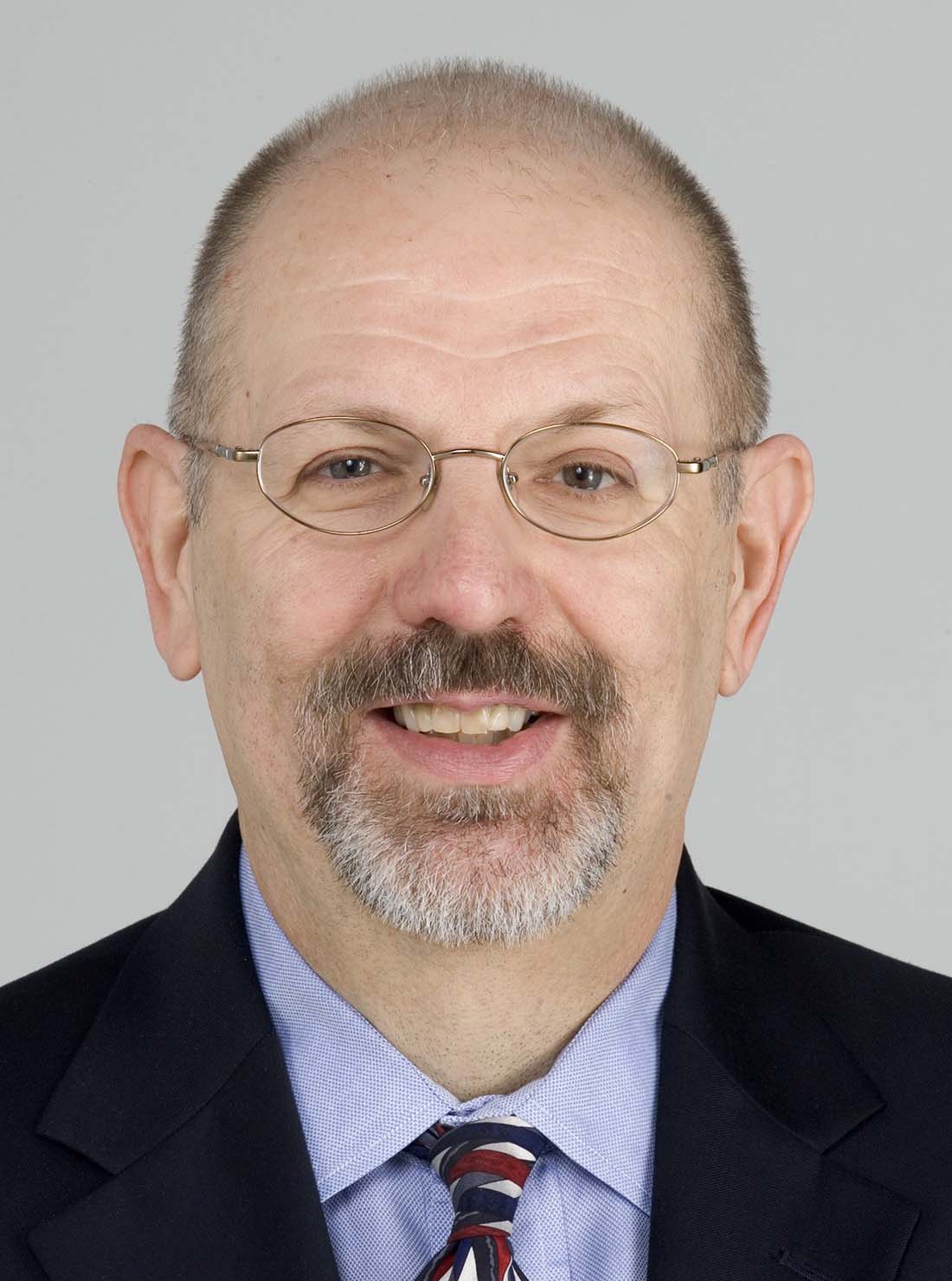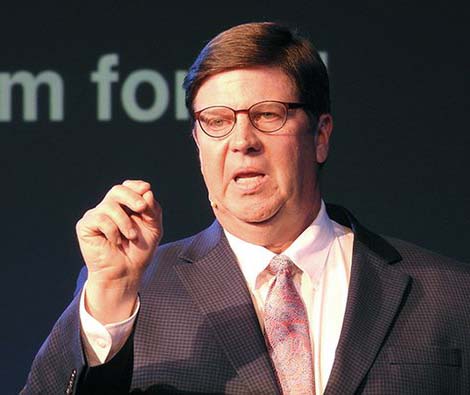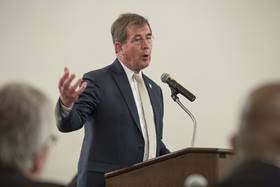Tales of Robin Hood, the English hero who robbed the rich to give to the poor, often start with an episode in which the hero saves a peasant from being killed by unscrupulous nobles for “poaching the king’s deer.” In the United Methodist Church, worries about poaching are driving the latest break-up developments.
As of mid-January, the UMC’s Council of Bishops awaited an expedited ruling from the denomination’s “high court,” the Judicial Council, on delegates’ standing to vote at the UMC’s legislative assembly, the General Conference, set to meet in 2024. Specifically, the bishops want to know whether a “change of status” will disqualify those elected to vote at the thrice-postponed General Conference.
In plainer English, “change of status” means the bishops want to know if they can instruct their regional units known as annual conferences to replace any lay or clergy delegates who’ve either voted to leave the UMC or announced intentions to do so. The bishops said in their request that they’re seeking guidance from the high court so that their actions are consistent from conference to conference.
While inconsistency in applying the UMC’s exit process has been one of the dissidents’ criticisms of the UMC, another possible motive could be to head off any challenges to the removal of dissident delegates. Plus, “inconsistency” in enforcing the UMC’s exit process is more properly applied to conference boards of trustees that make the decisions on property, including how much each departing congregation will be asked to pay to cast off United Methodist shackles.
They fear that unless dissident delegates are unseated, the global legislative assembly will be held hostage to those who harbor ill will toward the denomination.
The bishops’ request follows a resolution adopted in November by all five U.S. jurisdictional conferences urging all clergy and laity seeking to leave the UMC to resign their leadership positions immediately. Annual conference delegates elected for the thrice-postponed General Conference have said they fear that unless dissident delegates are unseated, the global legislative assembly will be held hostage to those who harbor ill will toward the denomination.
The conservative Wesleyan Covenant Association, whose leaders previously had said they would disband when a new “traditionalist” denomination formed, has reneged on that promise. Instead, a series of town hall meetings at which it will discuss disaffiliation and maintaining influence will occur on Jan. 24, 26 and Feb. 2 and 9, according to a newsletter from the WCA’s Pathways Task Force.
The question of “poaching” UMC members for the Global Methodist Church also has filtered down through regional leaders.

Stephen Drachler
Stephen Drachler, a retired communicator and church consultant, announced on Facebook: “The Susquehanna Conference (middle Pennsylvania) is asking clergy and laypersons who are part of the conference board and committee structure to resign their positions if they are planning to leave the UMC as part of the movement of people and churches to the new breakaway Global Methodist Church. This is a good move that shows our bishops and Cabinet are publicly expecting a high level of ethical behavior from those planning to leave due to the long debate over homosexuality. Too many pastors and laity have been acting as figurative Trojan Horses for years, undermining the conference, our congregations, and the denomination. A number have been spreading false and defamatory information about The United Methodist Church throughout this controversy.”
A recent video by Stan Copeland, senior pastor of Lovers’ Lane UMC in Dallas, also bears witness to leaders’ perceptions of manipulation. In the video, Copeland chastises former bishop Scott J. Jones, who sent a letter Jan. 9 announcing his defection from the UMC to become a bishop in the Global Methodist Church. Copeland and Jones served together as delegates from the North Texas Annual Conference to the 2004 General Conference.
“The GMC should have received you; you literally wrote the book.”
“I’m among those who are not surprised at your letter dated Jan. 9 — nine days after your formal retirement — announcing that you had been ‘received’ as a bishop in the Global Methodist Church,” Copeland said. “The GMC should have received you; you literally wrote the book.
“My question is, what took you so long?”

Stan Copeland
Copeland then recounted how in 2020 he had discussed with Jones the latter’s participation in creating the Wesleyan Covenant Association and helping to write the Global Methodist Church’s Transitional Book of Doctrine and Discipline. Copeland compared Jones’ actions as leader of the Houston-based Texas Conference to a CEO working with others to create a similar-yet-competitive corporation while being paid by the company the CEO was leaving.
“You were elected as a United Methodist bishop, responsible for ‘order,’ and amazingly you were helping form a new denomination,” Copeland said in the video. “Pastors were coached to sound neutral while pushing the GMC agenda, and out of your office came ‘how to leave the UMC’ material.” (“Order” is the UMC’s term for church administration, a vow all pastors take upon their ordination.)

Scott Jones
While Copeland has been tracing dissident leaders through his “Dear Bishop” video series, annual conferences — all except North Georgia, which has called a halt to disaffiliations — have been setting special sessions to deal with requests to exit the UMC. North Georgia’s decision to halt disaffiliations threatens dissident United Methodists because the legislation that enacted the exit process expires at the end of this year.
North Georgia Conference lay member Peter Fleming explained: “Our conference pause of disaffiliation was warranted by the lies coming from (conservative factions’ leader) Rob Renfroe and others. … The last (annual conference) approved 71 churches disaffiliating out of over 800. And all but two of these had (fewer) than 100 members. One had only three. Our clergy delegation to GC 2024 is progressive. … And most of our churches are moving on with our mission. We certainly are not in the dire straits of Florida or one of the Texas conferences where half the churches have disaffiliated.”
At the other end of the spectrum, North Georgia’s neighboring conference, South Carolina, has set up a discernment process to help its churches consider disaffiliation while equipped with facts about the UMC to counter the persistent misinformation from traditionalists.
Emotions remain high about the effects of UMC politics on local churches.
Emotions remain high about the effects of UMC politics on local churches. Bishop Karen Oliveto, episcopal leader of the Mountain Sky Conference, posted a question Jan. 18 on Facebook:
Kitchen table thought:
Why would a new emerging denomination seek to “poach” members of another denomination? Isn’t the mission field of Nones fertile enough? What do those actions reveal about that church’s understanding of its mission?
In reply, Andrew Bridgeman, senior pastor of Corvallis (Mont.) United Methodist Church, wrote of “deep sadness amidst feelings of relief” after his congregation voted to remain in the denomination.
“(The vote) became a choreographed street fight complete with a playbook and coaching,” Bridgeman wrote on Facebook. “Poaching is the word for it because it destroys all else in its path. Such is a theology of scarcity and fear where the lion and lamb cannot rest. A theology of empire whose power is not made perfect in weakness. I grieve my dear friends who have been enraptured by false promise. I grieve the disciples of truth who fan the flames of disinformation. I find sadness because it did not have to be this way.”
Cynthia B. Astle is a veteran journalist who has covered the worldwide United Methodist Church at all levels for more than 30 years. She serves as editor of United Methodist Insight, an online journal she founded in 2011.
Related articles:
‘Everybody’s doing it’: United Methodists ignoring their own rules as break-up continues | Opinion by Cynthia Astle


